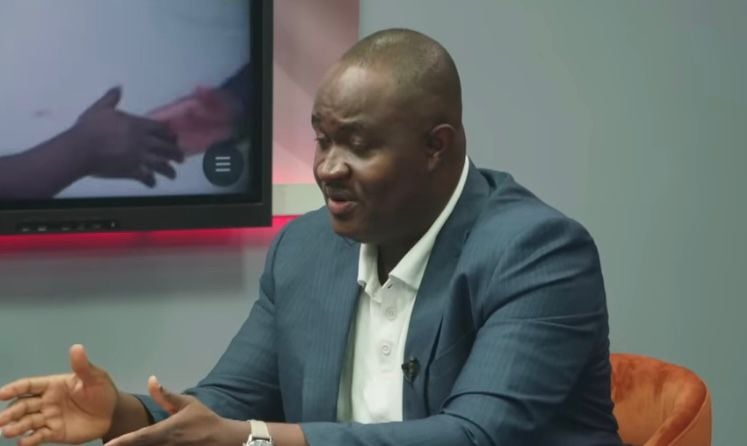The upcoming flagbearer race within Ghana’s New Patriotic Party (NPP) has sparked a debate surrounding pre-existing electoral bases and their significance in securing victory in the 2024 general elections. Dr. Mahamudu Bawumia, a prominent contender and former Vice President, has asserted that he possesses a substantial electoral foundation, claiming the NPP is already close to achieving victory. His argument centers on the party’s performance in previous elections, suggesting that with an additional 9% of the vote, the NPP can regain power. This claim, encapsulated in the slogan “Aka 9 p3,” has been met with strong opposition from the campaign team of another contender, Kennedy Agyapong.
Kwasi Kwarteng, spokesperson for the Agyapong campaign, has vehemently refuted Dr. Bawumia’s assertion, labeling it flawed and misleading. He argues that the concept of a guaranteed 41% vote share “in waiting” is illogical, pointing out that using similar reasoning, the opposition National Democratic Congress (NDC) could also claim a pre-existing 56% based on past performance, thus negating the need for any further elections. Kwarteng challenges the notion that a new candidate starts from zero, questioning whether Dr. Bawumia’s logic implies that the NDC would also begin from scratch with a new candidate in 2028. He contends that this line of reasoning ultimately renders the 41% argument deceptive and potentially misleading to voters.
The core of the disagreement lies in the interpretation of past electoral results and their predictive power for future contests. Dr. Bawumia’s camp seemingly views the previous vote share as a fixed starting point, implying a built-in advantage that requires only a relatively small increase to achieve victory. Conversely, the Agyapong camp argues that each election cycle presents a fresh start, requiring candidates to actively campaign and earn the support of the electorate regardless of past performance. This fundamental difference in perspective underscores the strategic divergence between the two campaigns.
Kwarteng’s critique extends beyond the theoretical implications of Dr. Bawumia’s claim, delving into the potential impact on voter perception. He suggests that presenting a pre-existing 41% as a guaranteed base could create a false sense of security among NPP supporters, potentially discouraging active participation in the campaign. Furthermore, he argues that this approach overlooks the dynamic nature of electoral politics, where voter preferences can shift significantly based on various factors, including candidate appeal, policy platforms, and prevailing socio-economic conditions. By emphasizing a fixed starting point, Kwarteng argues that Dr. Bawumia’s campaign risks downplaying the importance of engaging with voters and earning their trust.
This debate within the NPP highlights the complexities of electoral politics and the challenges of translating past performance into future success. While historical data can offer valuable insights into voting patterns and potential strongholds, it cannot fully predict the outcome of future elections. Voter behavior is influenced by a myriad of factors, and assuming a static electorate ignores the dynamic nature of political landscapes. Furthermore, presenting a pre-determined vote share as a guaranteed advantage can create a false sense of security and potentially disincentivize active campaigning.
The exchange between Dr. Bawumia’s and Kennedy Agyapong’s campaigns underscores the importance of engaging with voters and earning their support through persuasive arguments and demonstrable commitment to addressing their concerns. Ultimately, electoral success hinges not on perceived pre-existing bases, but on the ability to connect with voters, articulate a compelling vision for the future, and inspire confidence in the candidate’s ability to deliver on promises. This contest within the NPP serves as a reminder that in democratic elections, every vote must be earned, and past performance is no guarantee of future victory.


